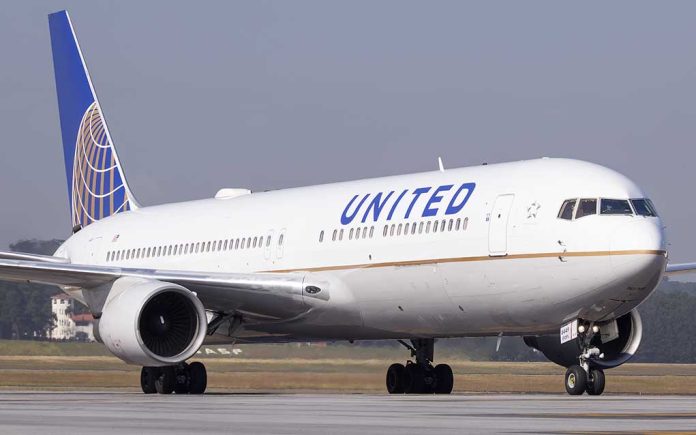
United Airlines’ shift to Airbus A321neo signals a strategic hedge against extended Boeing 737 MAX 10 delays, potentially reshaping America’s aviation landscape for decades.
Key Takeaways
- United Airlines has confirmed an order for 40 additional Airbus A321neo aircraft, initially listed as an undisclosed buyer on May 10.
- The order comes amid significant delays in Boeing’s 737 MAX 10 program, with United potentially not receiving their Boeing orders until 2027 or 2028.
- This purchase adds to United’s substantial Airbus commitment, which already includes over 150 A321neos and A321XLRs on order.
- Deliveries for these newly ordered aircraft won’t begin until after 2030 due to Airbus’s production backlog.
- Despite expanding its Airbus fleet, Boeing aircraft still comprise approximately 80% of United’s overall fleet.
United’s Strategic Aircraft Acquisition
United Airlines has confirmed a significant order for 40 Airbus A321neo aircraft, a move revealed just days after Airbus listed the sale with an undisclosed buyer on May 10. This acquisition represents the latest chapter in United’s fleet modernization strategy, adding to an already substantial backlog of more than 150 A321neo and A321XLR aircraft on order. The Chicago-based carrier currently operates over 35 A321neos in its fleet, with the aircraft gradually becoming a more prominent fixture in United’s domestic and international operations.
The timing of this order appears directly connected to ongoing certification and production challenges plaguing Boeing’s competing 737 MAX 10 program. United had previously expressed strong interest in the Boeing 737-10 as part of its fleet renewal strategy, but persistent delays have apparently prompted the airline to seek alternatives to meet its long-term capacity needs. This shift toward Airbus for narrow-body aircraft represents a significant development in the commercial aviation market, potentially signaling eroding confidence in Boeing’s ability to deliver aircraft on schedule.
“It’s the first time in a really long time that we took an Airbus, and this airplane right here [A321neo] is our highest-scoring customer service satisfaction airplane that we have in our system,” said Toby Enqvist, United Airlines Executive
Growing Airbus Footprint at United
United’s latest Airbus order builds upon a series of A321 family commitments made in recent years. In October 2023, the airline ordered 60 A321neos, adding to prior orders for 50 A321XLRs and 70 A321neos. This steady expansion of Airbus narrow-body aircraft within United’s fleet represents a notable shift for an airline that has historically maintained strong ties to American manufacturer Boeing. While Boeing aircraft still dominate United’s fleet at approximately 80%, the growing Airbus presence signals United’s pragmatic approach to fleet management amid Boeing’s ongoing production and certification challenges.
The A321neo has emerged as a particularly bright spot in United’s passenger experience metrics. According to company executives, the aircraft consistently receives the highest customer satisfaction scores in the airline’s fleet. This positive passenger feedback likely factored into United’s decision to expand its A321neo orders despite the extended wait time for deliveries. The aircraft’s superior comfort features, including quieter cabins, larger overhead bins, and improved fuel efficiency, have made it increasingly popular with both airlines and passengers across the industry.
$UAL United Airlines Holdings, Inc. Q3 2024 Earnings Call Key Highlights:
✈️ Operational Performance:
United experienced its busiest third quarter in history, setting records for passengers carried on major holidays and daily numbers, with 552,000 customers on a single day in… pic.twitter.com/zOBHWPUThF
— LongYield (@LongYield) October 16, 2024
Boeing’s Delivery Challenges
United’s decision to increase its Airbus orders comes against the backdrop of significant delays in Boeing’s 737 MAX 10 program. The American manufacturer has faced a series of regulatory hurdles and production challenges since the two fatal crashes that led to the worldwide grounding of the 737 MAX fleet in 2019. While the MAX 8 and MAX 9 variants have returned to service, the larger MAX 10 model, which United had heavily committed to, remains uncertified by the Federal Aviation Administration, with no clear timeline for entry into service.
Despite these challenges, Boeing remains United’s primary aircraft supplier. The airline has hundreds of Boeing aircraft on order, including 737 MAX models, 787 Dreamliners, and 777X wide-bodies. However, the growing delays have forced United to adopt a more flexible fleet strategy. With deliveries from this latest Airbus order not expected until after 2030 due to Airbus’s own production backlog, United appears to be taking a long-term view of its fleet requirements, positioning itself to maintain growth regardless of which manufacturer can deliver aircraft more reliably.





